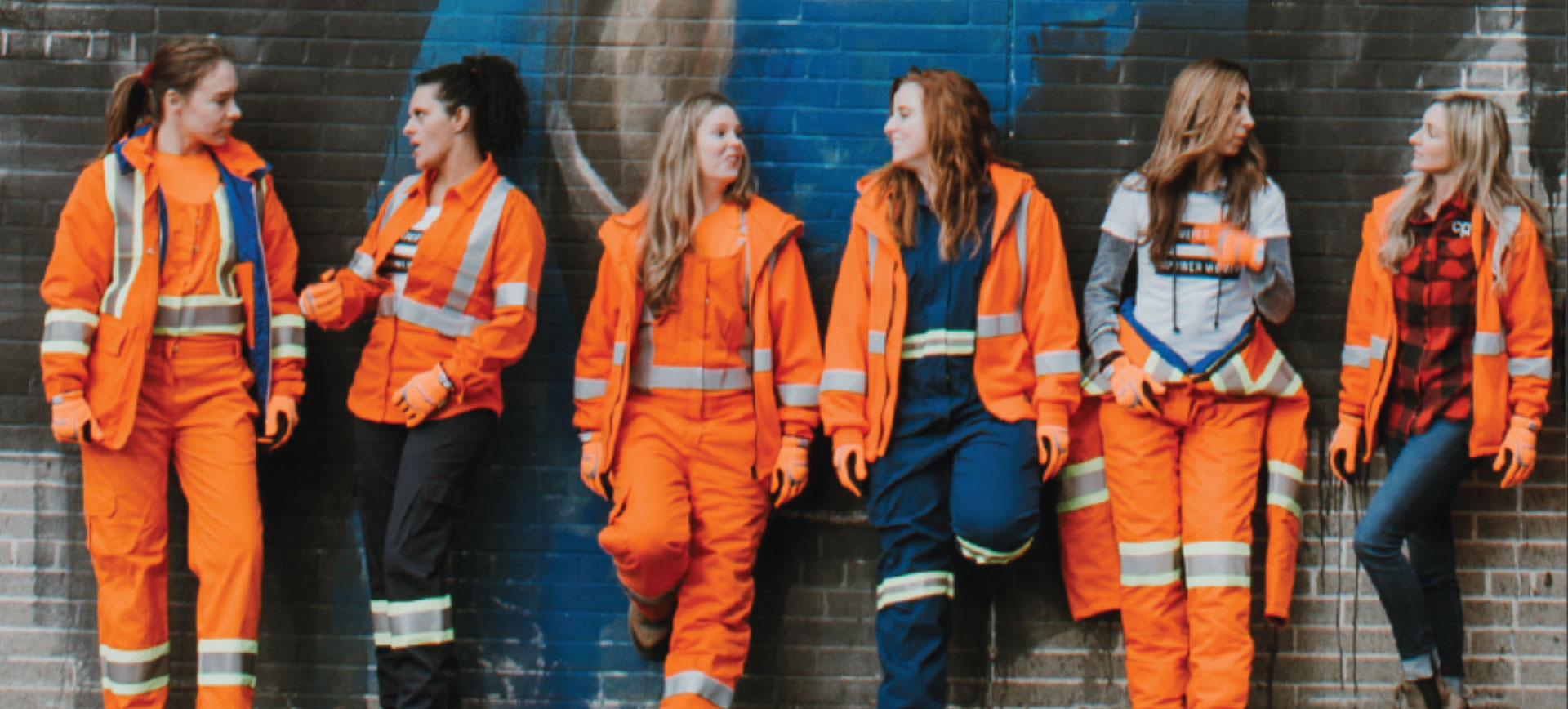In the midst of Canada’s chronic shortage of skilled workers, former mine worker Alicia Woods believes offering women work clothes that fit properly could encourage them to pursue careers in the trades.
Woods isn’t new to the struggle of finding work clothes that fit, in fact, it’s what led her to design her own line of work clothes specifically made to fit women.
“Workwear is part of inclusivity,” says Woods. “How included does a young female feel if she has to wear her father’s clothes or her brother’s clothes? I think it is a bit of a barrier to entry. I want to make women feel included in the job that they want to perform.”
Woods recalls when she went to a workwear store and only found men’s wear that was too baggy and didn’t fit properly. She bought the smallest men’s sizes she could find and worked with the oversized fit.
Woods made do with what she had for the next decade, recalling how her work gear reminded her of her father’s clothes. Some female colleagues modified their equipment at home. Woods points out, however, that tampering with specialized clothing can compromise the garment’s safety features.
In essence, the problem was obvious: mining companies needed to provide their female employees with the same level of safety as their male employees. They needed to offer specialized equipment for women.
‘I want to make women feel included’
“That’s how the Covergalls was really born,” Woods explains. “This is about health and safety. The reality is that this is an all-gender issue.”
The Sudbury-based venture started back in 2014 and has since grown to offer other workwear, such as bibs, gloves, and high-visibility shirts. One of the best examples of how far we’ve come in awareness of inclusivity, Woods adds, is the company’s new line of maternity workwear. One suit is already being worn.
“You think about all the different stages of your personal path, most women, once you start a family, that’s scary, too, when you’re in a career. When I was expecting, I was also growing my career and I didn’t want it to impact my position with the company,” Recalls Woods. “I did want them to say, ‘oh, you can’t work anymore.’ But if it’s not safe for unexpected mom to be underground, should anybody be there?”
However, Covergalls had a tough time selling. The venture was seen more as a fashion crisis rather than a legitimate safety concern, with Woods recalling having the door slammed in her face multiple times.
As Covergalls continued to grow, Woods realized that it is not just the mining sector that would benefit from the work gear, but the construction industry as a whole.
All women working in male-dominated industries, throughout the world, are subjected to men’s work attire. By incorporating workplace inclusion into Covergalls, the construction industry is making a commitment to diversity in the workplace.
